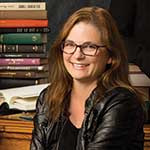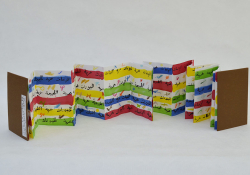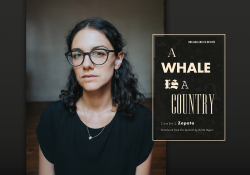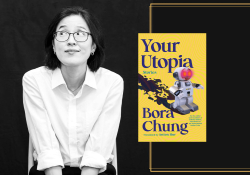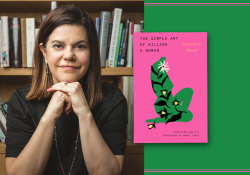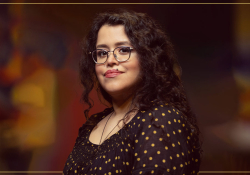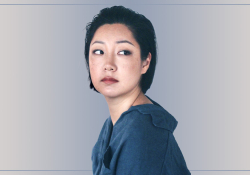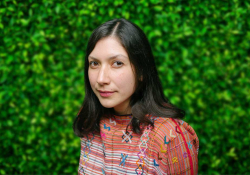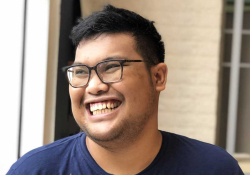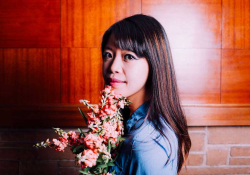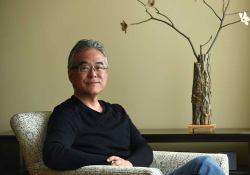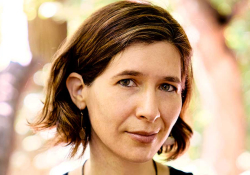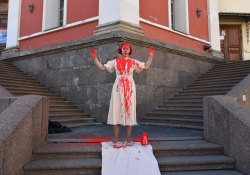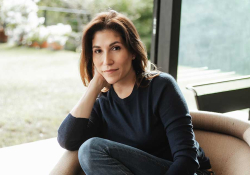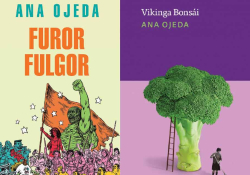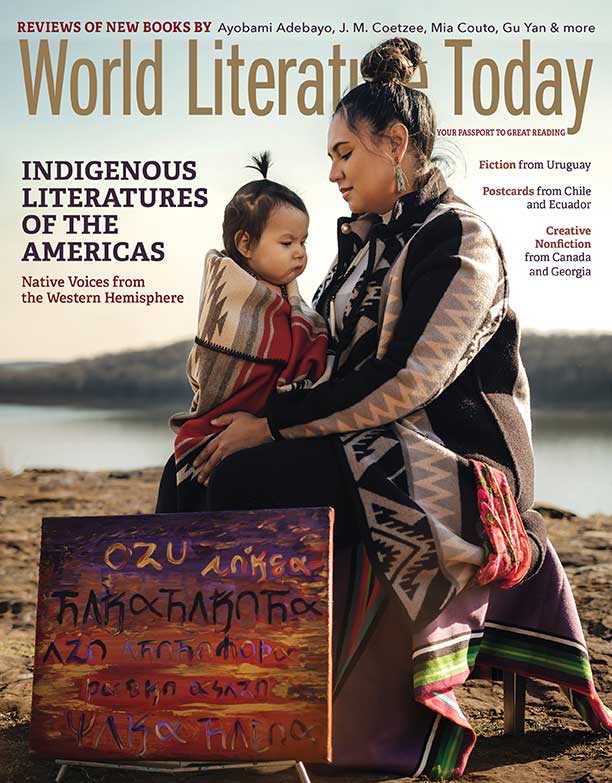5 Questions for Javier Fuentes
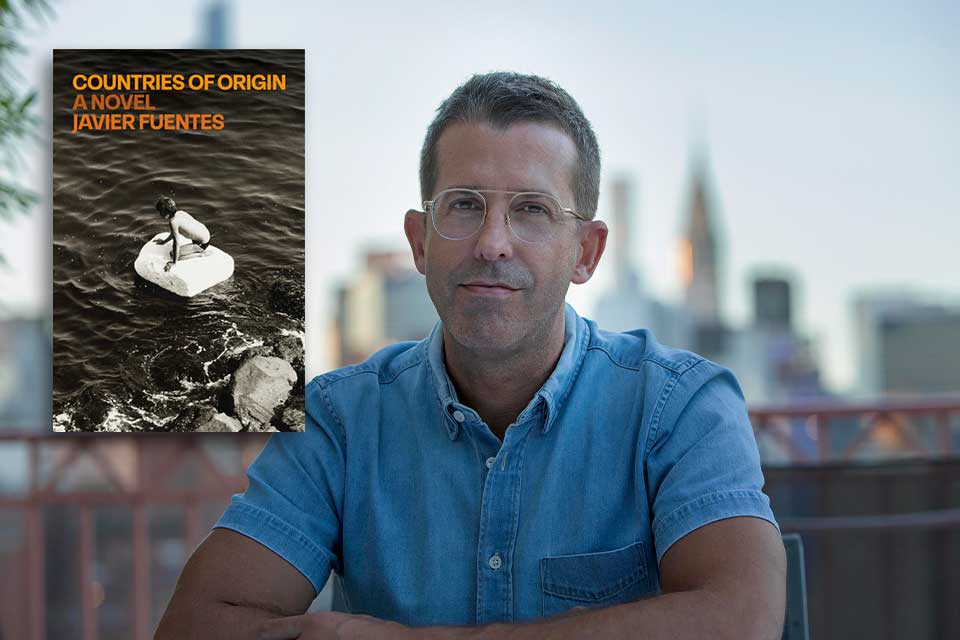 Javier Fuentes’s debut novel, Countries of Origin, finds pastry chef Demetrio leaving the US and returning to his birth country, Spain. On the flight to Madrid, he meets Jacobo, which begins a will-they-won’t-they story within this novel of reverse migration. As issues of class and privilege complicate the relationship, Demetrio rediscovers Madrid and questions his professional path.
Javier Fuentes’s debut novel, Countries of Origin, finds pastry chef Demetrio leaving the US and returning to his birth country, Spain. On the flight to Madrid, he meets Jacobo, which begins a will-they-won’t-they story within this novel of reverse migration. As issues of class and privilege complicate the relationship, Demetrio rediscovers Madrid and questions his professional path.
Q
Something I particularly enjoyed about Countries of Origin is how you write about place, whether Demetrio is biking through New York City or walking through Madrid. You seem to be capturing a disappearing New York City and contrasting its money-driven landscape with a slower, less-gentrified Madrid. How do you view your changing city?
A
Place is a central aspect in the immigrant experience. In the same way that Demetrio’s uncle, Chus, had to flee Spain during the Franco regime and relocate to the United States, Demetrio’s lack of future due to not having the right papers forces him out of New York. In Madrid, Demetrio experiences a city not yet transformed by unfettered capitalism and recognizes in Lavapiés echoes of the Lower East Side he grew up in.
Most of the cultural and queer spaces of the 1990s where I became a young adult are now a Chase Manhattan Bank, a Starbucks, or a CVS. Those physical spaces, and the people who frequented them, played a crucial role in my development, especially in those parts of my identity that I had to cultivate outside of my family: the queer and the immigrant.
Though I can’t avoid feeling nostalgic, New York is still a city that contains multitudes, a space that provides you with both the necessary anonymity for exploration and then the right communities to participate in. Due to skyrocketing rent prices, many artists and cultural spaces have moved away from Manhattan, but the new generations coming to the city for self-discovery now go to the Bronx, Brooklyn, and Queens. Manhattan is no longer the cultural epicenter, but New York City is still where it’s at. I can’t think of a better place for those who have not found home yet.
Q
As Demetrio experiences new landscapes, his perspective shifts: “Because I had grown up in Manhattan, my eyes were used to a limited depth of field, and the expansiveness of this view had a hypnotic effect on me. As I admired the landscape before me, time seemed to have stopped. I suddenly had all the time in the world, all the time to contemplate where I had arrived.” Even his desserts change. Is psychogeography among your interests?
A
Yes, it is. I first came across Guy Debord’s Theory of the Dérive as a teenager living in Madrid. It was an assigned reading for my sister who, at the time, was studying architecture at the Universidad Complutense. Debord led me to Walter Benjamin and Charles Baudelaire, whose works contributed to my infatuation with the myth of the flâneur.
Demetrio’s drifting through the streets of Madrid mirrors the alienation he experiences after leaving New York. The behavioral disorientation he has been suffering, which becomes more acute after meeting the immigration lawyer, and his decision to leave the United States are very much represented in his relationship with the space he is inhabiting. Demetrio came of age in the twenty-six-by-fourteen-foot kitchen of a high-end restaurant, a windowless space that for a long time felt particularly safe due to his lack of papers. But when he arrives in Spain, a country he finally can’t be expelled from, he progressively begins to experience a kind of grounding that allows him to reflect on his life and consider his future with an expansiveness he couldn’t access before.
After having lived in Manhattan most of his life, with its street grid system forcing him to move through the city in efficient ways, Demetrio loves getting lost in the meandering streets and alleys of Madrid’s old center. It is on those unplanned journeys, drifting, discovering monuments and palaces and ancient squares, where he finally orients himself and discovers who he is, who he can become.
Q
Demetrio is a star pastry chef, and your descriptions of his creations are detailed and appetizing. Where are your favorite dessert spots in New York City?
A
There are so many, particularly now with the resurgence of dessert shops. Sullivan Street Bakery in Soho, a classic, is still one of my favorite bakeries in the city. I love the Poseidon Bakery for the thick-cut spanakopita, Veniero’s for the classic cannolis, and a new spot that recently opened in my neighborhood: Lysée. The menu is outstanding because it is a mix of Korean and Western traditions, flavors that I could not have imagined in my wildest dreams. The signature dessert, the “Lyseé,” is a mousse cake whose base is a toasted Korean brown rice mousse—ecstatic layers of flavor.
Q
What cultural offerings or trend have recently captured your attention?
A
I am not a big trend follower, but some of the best arts shows I have seen lately are the Jimmy De Sana at the Brooklyn Museum, Joan Brown at Matthew Marks, Wangechi Mutu at the New Museum, and Richard Avedon at Gagosian.
Q
Which contemporary writers are you most excited about reading at the moment?
A
After reading Grief Is the Thing with Feathers, by Max Porter, I want to gobble all his books. Alana S. Portero’s La mala costumbre is a total gem (the English translation is forthcoming from HarperVia in 2024). Since I recently relocated to the Catskills after being in Manhattan for twenty-five years, I find myself craving literature that is nature or travel themed. So, writers like Bruce Chatwin, Paul Theroux, and Mary Oliver, who had perennially been on my list, have now made it to the top.
Spanish American writer Javier Fuentes, a 2018 Lambda Literary Fellow, earned an MFA in fiction from Columbia University, where he was a teaching fellow. Born in Barcelona, he lives in New York. Countries of Origin is his first book.
